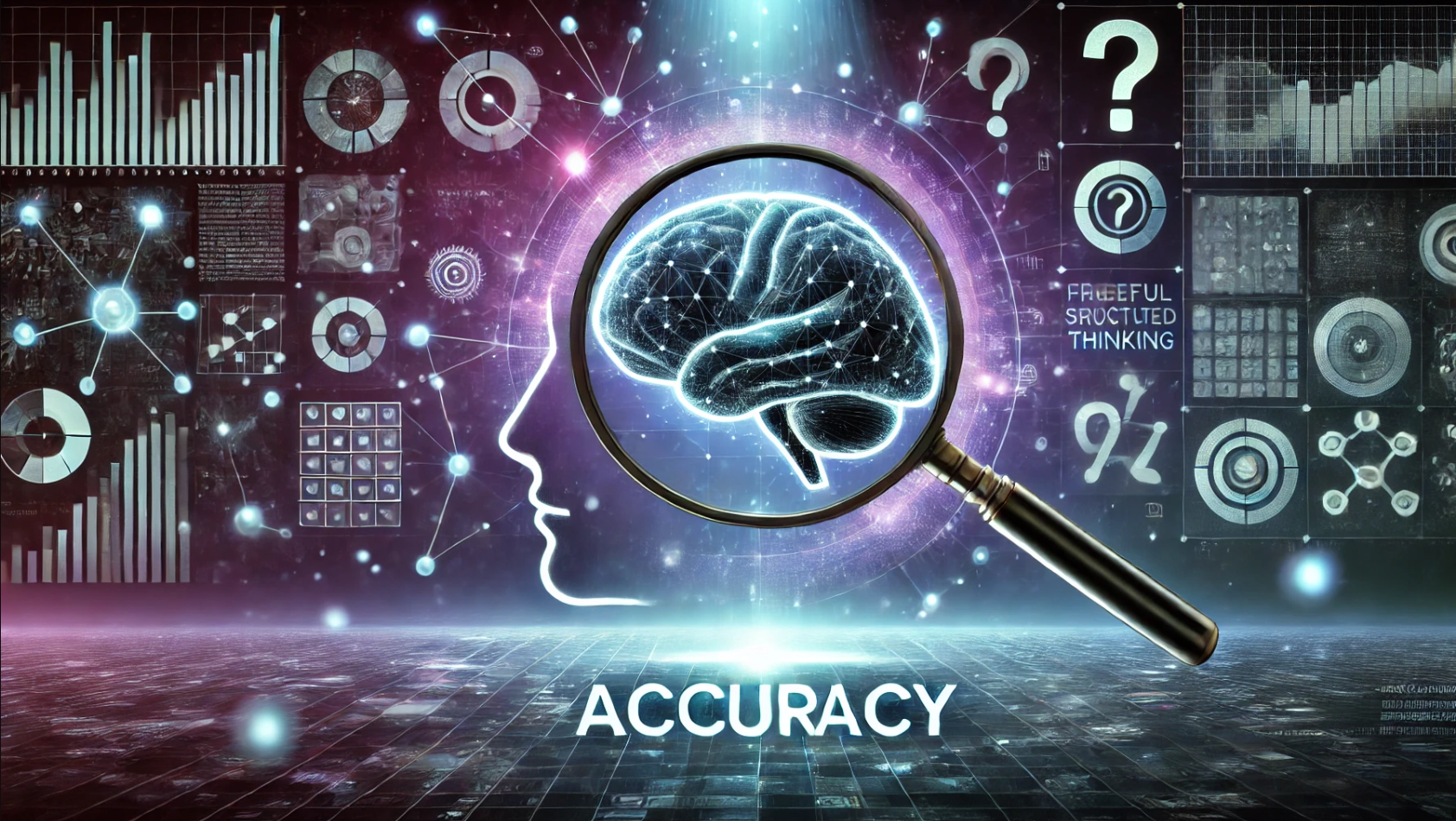Accuracy is an important part of critical thinking because it helps people make good decisions based on true and reliable information. Without accuracy, people can be tricked by wrong facts, bad guesses, or confusing ideas. In today’s world, where information is everywhere, knowing how to tell fact from fiction is a key skill for smart decision-making. To think carefully, a person needs to check facts before believing them. Information can come from books, websites, social media, and news, but not all of it is correct. Someone who values accuracy takes time to make sure a statement is backed up by reliable sources. For example, if a person reads that a new diet can help people lose weight fast, a smart thinker will research more. They would look for studies from health experts to see if the claim is true.
Believing in wrong information can cause problems. In a job, bad data can lead to big mistakes. A business that relies on false financial reports might lose money. A doctor who uses the wrong medical records might give a patient the wrong treatment. In school, if students learn incorrect history, they will not understand the truth about the past. These examples show why accuracy is so important.
One reason accuracy is hard is because of false information. Social media, news, and even friends can spread wrong ideas fast. Many people believe things without checking if they are true, especially if it matches what they already think. A careful thinker does not believe everything right away. Instead, they ask questions like: Where did this information come from? Who wrote it? Is there proof? By making a habit of asking questions, a person can avoid being misled.
Accuracy is also connected to fairness. Sometimes, personal feelings or opinions can make people believe things that are not true. A person who cares about accuracy tries to separate facts from opinions. For example, if someone strongly supports a certain political idea, they might only read news that agrees with them. A smart thinker tries to look at different sides and focus on facts instead of personal feelings.
Another important part of accuracy is clear communication. When people share information, they need to make sure their words are easy to understand. Misunderstandings happen when statements are unclear. If scientist shares research but does not explain it well, people might misunderstand. In daily life, unclear communication can lead to confusion and arguments. Being careful with words helps people share ideas better and avoid mistakes.
Being accurate takes time and effort. It is easy to believe things without checking, but a careful thinker knows that fact-checking is important. They check different sources, ask questions, and are open to changing their minds when new facts appear. This attitude helps people admit when they are wrong and learn from their mistakes.
Students who focus on accuracy do better in school. When writing papers, they use reliable sources instead of guessing. Scientists follow strict rules to make sure their research is correct. In everyday life, accuracy helps people make good choices, like picking a college, buying a product, or forming an opinion on a topic.
Learning to be accurate takes practice. It means questioning things, checking facts, and keeping an open mind. It also means being willing to admit mistakes and fix them. People who value accuracy understand that learning never stops. New information can change what they know, and they accept that as part of growing.
Accuracy is not just a skill—it is a way of thinking. It takes effort and a desire to find the truth. In a world full of different opinions and false facts, thinking carefully and valuing accuracy is more important than ever. People who build this skill can make better choices, solve problems, and make a positive impact in their communities.

